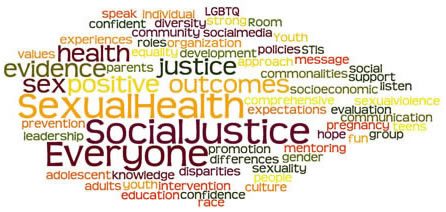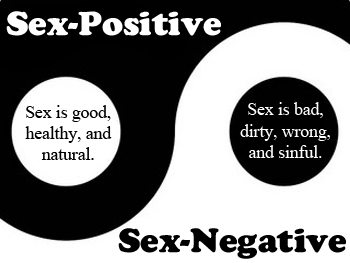As I discussed in my previous post about an upcoming TV show, social justice is an important part of my mission and my work as a sex therapist. So what does social justice mean, and how exactly do I apply it in my sex therapy practice? First, let’s take a look at a definition of what social justice is. I found a good quote from Matthew Robinson, a Poli Sci professor, that pretty much sums up my own views on this issue:
Social justice is defined as “… promoting a just society by challenging injustice and valuing diversity.” It exists when “all people share a common humanity and therefore have a right to equitable treatment, support for their human rights, and a fair allocation of community resources.” In conditions of social justice, people are “not be discriminated against, nor their welfare and well-being constrained or prejudiced on the basis of gender, sexuality, religion, political affiliations, age, race, belief, disability, location, social class, socioeconomic circumstances, or other characteristic of background or group membership”
The key elements of this that resonate for me in my practice are: a) challenging injustice, b) valuing diversity, c) welfare nor well-being constrained or prejudiced based on gender, sexuality, etc…. As a practicing psychotherapist, I am sometimes concerned that social justice is not always appropriately observed in consulting rooms and I often speak out about this in my writings and lectures. Often, social injustice is perpetrated unwittingly through unnecessary pathologizing of non-normative, yet non-pathological manners of sexual expression and behaviors. I believe the good folks who do this mean well, they just don’t have enough […]
What is Social Justice and How Does It Apply to Sex Therapy?
Some Thoughts about TV Show Casting for Kinky Couples
I was recently contacted by a TV producer seeking kinky couples for a tv show set to premier next spring.
The email read:
We’re currently working with a major cable network on a television project that’s dedicated to highlighting the wildest, craziest and most unusual sexual fetishes out there and meeting the couples (or singles!) who believe that adding a little – or a lot – of spice in the bedroom is the best way to keep their sex lives fun and fresh! We’re looking for everyday couples (or singles) who have fully embraced a unique sexual fetish and have no intention of slowing down. If you’re ready to share your fetish with the world in the hopes of removing the stigma that often accompanies them, we want to hear from you!
I spoke with the producer over the phone to feel her out. First, she wanted to know if I could refer any of my clients, and I point blank turned that down because, as a matter of policy, I never involve my clients in media inquiries. Then she wanted to know if I could put out some feelers in the kink community to see if anyone would be interested in participating. She seemed to have her heart in the right place, explaining that they wanted to put kink in a positive light, and show how sexual experimentation can be (and is) used by couples to enhance relationships. But in the end, after conferring with other colleagues, I decided to pass on getting involved.
On one hand, I think this project, if done properly, could represent a […]
What Does It Mean to Be “Sex Positive?”
Anyone surfing the net looking for sexual information will have probably encountered the term “sex-positive.” Individuals seeking therapists for sexual difficulties will also have inevitably read a therapist profile or bio which indicated that the clinician identified as sex positive. But what does this term mean, especially coming from a therapist?
I will offer a quote from sexologist Carol Queen to get the discussion going–
“Sex-positive, a term that’s coming into cultural awareness, isn’t a dippy love-child celebration of orgone – it’s a simple yet radical affirmation that we each grow our own passions on a different medium, that instead of having two or three or even half a dozen sexual orientations, we should be thinking in terms of millions. “Sex-positive” respects each of our unique sexual profiles, even as we acknowledge that some of us have been damaged by a culture that tries to eradicate sexual difference and possibility.
It’s the cultural philosophy that understands sexuality as a potentially positive force in one’s life, and it can, of course, be contrasted with sex-negativity, which sees sex as problematic, disruptive, dangerous. Sex-positivity allows for and in fact celebrates sexual diversity, differing desires and relationships structures, and individual choices based on consent.”
In my mind, being sex positive at its core means that one’s default position is that sex is natural, generally healthy in all its variations, and can be utilized positively in the service of personal growth and creativity. Now, that of course does not mean that sex can’t be used destructively, just that pathology is never the underlying assumption. For a distinction between the two, click here. (Cliffs Notes version– according to […]
Marat/Sade: Some Thoughts on Social Change and Sexuality
Over this past weekend, I was fortunate enough to see a new, more futuristic adaptation of the classic play Marat/Sade performed at the Players Theater in Greenwich Village. As I was watching, I was struck by the realization that many of the ideas as well as the main theme of the piece had much to do with my work as a sex therapist. And so I would like to put some of my thoughts down as a post on my blog, both as a means to clarify them and delve deeper in further exploration.
Marat/Sade originally premiered in West Berlin in 1964 and eventually won the Tony Award in 1966 for Best Play. It is set in the historical Charenton Asylum during the reign of Napoleon, and centers on a play staged within the asylum by the Marquis de Sade and using the asylum inmates as actors. The Marquis de Sade (from whom we have the term “sadism”) was held in the asylum after his arrest for the anonymous publication of Justine and other pornographic tracts. In real life, the director of the hospital did allow de Sade to stage plays within the asylum, often to a public audience. The particular play-within-a-play performed as Marat/Sade focuses on the life and assassination of Jean-Paul Marat, a radical journalist who goaded on the French Revolution, and was eventually assassinated by a member of a rival faction. As the play unfolds, the Marquis pops in now and then to add his commentary to the proceedings.
The central idea of the play is the juxtaposition and contrast between the philosophies of Marat and de Sade. […]
When It Comes to Sex, It’s All About Intent
As a therapist, I am often asked to differentiate between positive and healthy sexual behavior and that behavior which can be considered “pathological,” or unhealthy. The difference is often a very fine line, seeming vague and unclear to most observers. When it comes down to it, two different people can be engaged in the exact same behavior, but for two radically different reasons– one that enhances the person’s life and the other that undermines it. When trying to determine what is healthy or not when it comes to sex, what it often boils down to is intent.
By intent, I mean the purpose underlying the person’s actions. Is the sexual act creating pleasure and fulfillment in the lives of everyone involved, or is it coercive and manipulative, pleasing one person but exploiting or harming others? As an example, I recently did an interview with a magazine writer who was inquiring about the swinger subculture. The journalist wanted to know if it was a healthy activity for couples, and my answer, as is often the case, was… it depends. Has the couple discussed clearly what they expect from their encounter? Have they discussed hard limits and boundaries? Are they clear on why they are looking to open up the relationship? In that case, if everyone is on board and clear about what they want, then the experience may be positive and add fuel to their sexual relationship. However, it is also not uncommon for someone to drag the other person into a party under covert threat of the dissolution of the relationship if the other person […]
The Use of Role-Play as a Means of Identity Exploration
Note: This article and subsequent articles about various aspects of power dynamics and kink within relationships is not meant as specific suggestions or clinical advice and is only meant as a psychological examination of diverse sexual behaviors.
In an earlier article, I talked about the psychologist Donald Mosher’s three types of sex– trance, role-play and partner engagement. In this article, I want to take a much closer look at the psychological aspects of the second category, role-play.
It is first important to understand what is meant by the term “role.” According to the dictionary definition, a role is a “characteristic and expected social behavior of an individual.” I think the key ideas here are that roles are implicitly social in context and are based on agreed-upon (social) expectations. Roles come in many guises. We all have interpersonal roles– such as mother, father, child, brother, sister, etc. We have work roles– supervisor, apprentice, etc. And we have many other contextual roles– breadwinner, caretaker, jokester, black sheep, villain and so on. The more roles we have, the more we can feel boxed in, living up to a multitude of social expectations. Often, we may find ourselves in a multitude of roles– father, brother, son, husband, breadwinner, boss, entrepreneur, and so on. Every single role foisted upon us (or that which we willingly take on) add another wall to our sense of possibilities and freedom.
Someone, for example, who is a a mother who also has a very demanding corporate job and is the breadwinner for the family would probably find it much more difficult to behave with a sense […]
Study: BDSM Linked to Better Mental Health
This post is about a study that probably many of my readers are already aware of, but I wanted to bring it up again in order to take a closer look at what the findings may mean. About six months ago, a study entitled Psychological Characteristics appeared in The Journal of Sexual Medicine. The researchers, both psychologists from the Netherlands, sent out over 1300 questionnaires to two groups, one control group and the other one consisting of individuals self identified as kinky. The study found that not only are kinky people not mentally ill, but that they actually scored better on the following criteria– less neurotic, more extraverted, more open to new experiences, more conscientious, less rejection sensitive, and had higher subjective well-being. Higher subjective well-being– isn’t that what mental health is all about? The results of the study according to the researchers: We conclude that BDSM may be thought of as a recreational leisure, rather than the expression of psychopathological processes. The actual study can be found here.
These results should come as no surprise for keen students of sexology. In the past few years, there have probably been about a half dozen similar studies that have shown no correlation between kinky sex and pathology. None. And these were all very legitimate studies done by reputable researchers. I will track them all down and post them here when I get a chance. So stay tuned as I will be updating this article in the near future.
So then the question remains– if this study is accurate and BDSM practitioners have better well-being than non-kinky people, then […]
Required Reading: The Authoritarians
Every once in a while I’ll stumble upon an amazing resource online that makes me want to recommend it to anyone who will listen. With that in mind, probably the best thing I’ve read all year is a free ebook written by psychologist Bob Altemeyer called The Authoritarians. The amazing book discusses political ideology from a psychological perspective. Basically, people who vote Republican or are Evangelical can be described as authoritarians– they crave authority in order to feel safe and secure in the world. It doesn’t matter if the authority is deeply flawed, if it takes the form of a president who sends us to useless and meaningless wars, or in the form of literal readings of a religious text which has so many holes in consistency that it could be swiss cheese. All that matters is that there is an authority ready to tell them what to do.
Based on extensive psychological research, Altemeyer argues that certain people (about half the population) are wired to crave authority above all and everything else. To them, secular relativism is just way too anxiety provoking. It’s just way too difficult for them to get on in the world if there are no absolute laws or morality. The authority doesn’t have to make sense, doesn’t have to have any kind of internal consistency or logic, and definitely doesn’t have to give a crap about the welfare of those “others” (and those who seek authority all know who those others are). Above and beyond all else, the right authority must be very strict, very harsh, and extremely punitive. Seems […]









 Prevention: Is Sex Addiction Real?
Prevention: Is Sex Addiction Real? Romper: Emotional Infidelity
Romper: Emotional Infidelity Fatherly: BDSM More Common Than You Think
Fatherly: BDSM More Common Than You Think E! Online: Marrying a Murderer
E! Online: Marrying a Murderer Who Magazine: What is Bisexuality?
Who Magazine: What is Bisexuality? CNN: Why Men May Exaggerate Their Sex Numbers
CNN: Why Men May Exaggerate Their Sex Numbers Women’s Health: 10 Kinky Sex Ideas
Women’s Health: 10 Kinky Sex Ideas NY Post: How Tattoos Can Sabotage Your Love Life
NY Post: How Tattoos Can Sabotage Your Love Life Allure: 8 BDSM Sex Tips to Try If You’re a Total Beginner
Allure: 8 BDSM Sex Tips to Try If You’re a Total Beginner
 Great article in Prevention Magazine about the sex addiction controversy. Check out what I had to say.
Great article in Prevention Magazine about the sex addiction controversy. Check out what I had to say.
 Romper approached me again for another quote, this time about emotional infidelity.
Romper approached me again for another quote, this time about emotional infidelity.
 Interesting piece in Fatherly about BDSM in which I was interviewed.
https://www.fatherly.com/love-money/bdsm-kinky-sex-not-uncommon/
Interesting piece in Fatherly about BDSM in which I was interviewed.
https://www.fatherly.com/love-money/bdsm-kinky-sex-not-uncommon/ E! News picked up my an interview I did with Vice a few years ago about hybristophilia, which is the attraction to criminals. Very interesting story.
E! News picked up my an interview I did with Vice a few years ago about hybristophilia, which is the attraction to criminals. Very interesting story.
 Who is Australia's version of People Magazine. They wanted to know what bisexuality is and I provided some insight.
Who is Australia's version of People Magazine. They wanted to know what bisexuality is and I provided some insight.
 Seems like something doesn't add up on sex surveys-- are men exaggerating their number of partners? Check out what I tell CNN.
Seems like something doesn't add up on sex surveys-- are men exaggerating their number of partners? Check out what I tell CNN.
 Women's Health asked me for some kinky ideas to spice up one's sex life.
Women's Health asked me for some kinky ideas to spice up one's sex life.
 I was interviewed by the NY Post about all the ways in which I've seen bad tattoos sabotage relationships.
I was interviewed by the NY Post about all the ways in which I've seen bad tattoos sabotage relationships.
 Allure Magazine asked me about tips for BDSM beginners.
Allure Magazine asked me about tips for BDSM beginners.
 I answer questions from Salon.com about the infamous porn site PornHub.
I answer questions from Salon.com about the infamous porn site PornHub.
 I tell Cosmo about the personality traits of monogamous individuals.
I tell Cosmo about the personality traits of monogamous individuals.
 I explain to Refinery29 why it's so important to not fake orgasms in a relationship.
I explain to Refinery29 why it's so important to not fake orgasms in a relationship.
 I am interviewed in this fairly nuanced piece on the pros and cons of porn.
I am interviewed in this fairly nuanced piece on the pros and cons of porn.
 I am interviewed by Headspace, one of the best meditation and mindfulness apps available, on how to become more present.
https://www.headspace.com/blog/2017/05/26/enjoy-sex-more/
I am interviewed by Headspace, one of the best meditation and mindfulness apps available, on how to become more present.
https://www.headspace.com/blog/2017/05/26/enjoy-sex-more/ I am interviewed in this intriguing Business Insider article on how often happy couples have sex.
I am interviewed in this intriguing Business Insider article on how often happy couples have sex.
 The Huffington Post in South Africa profiles my work around challenging sex addiction (including my red/yellow/green menu exercise) .
The Huffington Post in South Africa profiles my work around challenging sex addiction (including my red/yellow/green menu exercise) .
 I go deep into the sex toy business with Vice.
I go deep into the sex toy business with Vice.
 I give some insight into this interesting topic.
https://thetab.com/us/2017/03/22/happens-boyfriend-leaves-another-man-63306
I give some insight into this interesting topic.
https://thetab.com/us/2017/03/22/happens-boyfriend-leaves-another-man-63306 I am featured in this outstanding article in UK's Independent on women and virtual reality porn. I thought this was a fairly sharp and nuanced piece.
I am featured in this outstanding article in UK's Independent on women and virtual reality porn. I thought this was a fairly sharp and nuanced piece.
 I give Redbook some pointers on having a 3some for the first time.
I give Redbook some pointers on having a 3some for the first time.

 Playboy sent a journalist to watch Fifty Shades Darker, and then compared the movie with the results from my recent groundbreaking research on BDSM. Great article, enjoy!
Playboy sent a journalist to watch Fifty Shades Darker, and then compared the movie with the results from my recent groundbreaking research on BDSM. Great article, enjoy!
 I am featured in this terrific New York Magazine article, discussing some of the finer points brought up in the earlier article in SELF magazine (see listing below).
I am featured in this terrific New York Magazine article, discussing some of the finer points brought up in the earlier article in SELF magazine (see listing below).
 I am featured in this terrific article in SELF magazine on the nuances of the sex addiction debate.
I am featured in this terrific article in SELF magazine on the nuances of the sex addiction debate.
 Complex asked me to weigh in on this provocative topic.
Complex asked me to weigh in on this provocative topic.

 I weigh in in this great advice column in Thrillist by Elle Stanger.
I weigh in in this great advice column in Thrillist by Elle Stanger.

 Great episode, check it out.
https://soundcloud.com/futureofsex/04-exploring-sexual-fluidity-bicuriousity-for-women-featuring-skirt-club-and-dr-michael-aaron
Great episode, check it out.
https://soundcloud.com/futureofsex/04-exploring-sexual-fluidity-bicuriousity-for-women-featuring-skirt-club-and-dr-michael-aaron I give couples advice on how to deal with differences in preferred sleeping arrangements.
I give couples advice on how to deal with differences in preferred sleeping arrangements.
 Alternet does a great job of reviewing my book. Check out the link below.
Alternet does a great job of reviewing my book. Check out the link below.
 In this episode, we talk about the societal myths of sexuality, including:
In this episode, we talk about the societal myths of sexuality, including:
 I was asked to appear on Australian radio. It was a very fun segment, will post the link when I have it!
I was asked to appear on Australian radio. It was a very fun segment, will post the link when I have it! I appear on the Stereo-Typed podcast to discuss my new book, fantasies, and our shadow self. Click the audio player below and enjoy!
https://www.spreaker.com/user/crazyheart/stereo-typed-8-dancing-with-your-shadow
I appear on the Stereo-Typed podcast to discuss my new book, fantasies, and our shadow self. Click the audio player below and enjoy!
https://www.spreaker.com/user/crazyheart/stereo-typed-8-dancing-with-your-shadow I appear on the Boom Doctors Podcast to discuss my new book Modern Sexuality and my work as a sex therapist. Clink the link below to listen in.
http://theboomdoctors.com/2016/09/21/ep-132-michael-aaron-on-his-work-as-a-sex-therapist-his-new-book-modern-sexuality/
I appear on the Boom Doctors Podcast to discuss my new book Modern Sexuality and my work as a sex therapist. Clink the link below to listen in.
http://theboomdoctors.com/2016/09/21/ep-132-michael-aaron-on-his-work-as-a-sex-therapist-his-new-book-modern-sexuality/ I was asked by Nylon Magazine to weigh in on the subject of porn and what it means about the individual consumer. Pretty good non-pathologizing piece, check it out here:
I was asked by Nylon Magazine to weigh in on the subject of porn and what it means about the individual consumer. Pretty good non-pathologizing piece, check it out here:
 I was interviewed by Vocativ about a new virtual reality series entitled "Virtual Sexology," designed to provide breathing and relaxation exercises in a virtual reality format to help individuals improve sexual functioning. Will something like this prove effective? The jury is out, but check out what I had to say...
I was interviewed by Vocativ about a new virtual reality series entitled "Virtual Sexology," designed to provide breathing and relaxation exercises in a virtual reality format to help individuals improve sexual functioning. Will something like this prove effective? The jury is out, but check out what I had to say...
 I appeared on the nationally broadcasted Fusion Network Hotline show to discuss the GOP platform of porn as a "public health crisis." As part of the discussion I debate Dr. Neil Malamuth on porn and sexual violence. I thought this was a very thorough and productive half hour, which you can watch below:
I appeared on the nationally broadcasted Fusion Network Hotline show to discuss the GOP platform of porn as a "public health crisis." As part of the discussion I debate Dr. Neil Malamuth on porn and sexual violence. I thought this was a very thorough and productive half hour, which you can watch below:
 In this Huffington Post article, I advise couples to use sex menus to spice things up. Check out all the details in the link below.
In this Huffington Post article, I advise couples to use sex menus to spice things up. Check out all the details in the link below.

 I appeared on French national tv channel Canal + on the Emission Antoine tv show, discussing the psychology behind financial domination. I will post a video clip of the interview shortly.
I appeared on French national tv channel Canal + on the Emission Antoine tv show, discussing the psychology behind financial domination. I will post a video clip of the interview shortly. I was interviewed on Huffington Post's Love + Sex Podcast, which I'm told is the most downloaded sex and relationship podcast on iTunes. In this episode, I dispel the wild myths about "sex roulette" parties.
I was interviewed on Huffington Post's Love + Sex Podcast, which I'm told is the most downloaded sex and relationship podcast on iTunes. In this episode, I dispel the wild myths about "sex roulette" parties.
 I was interviewed for an upcoming online sexuality discussion series, the Sexual Reawakening Summit. It features many top sex therapists from around the country and you can access it by using this link:
I was interviewed for an upcoming online sexuality discussion series, the Sexual Reawakening Summit. It features many top sex therapists from around the country and you can access it by using this link:  In the April edition of my Men's Fitness 'Sex Files' Q&A column, I answer questions about anal sex and porn. Hurry and pick up a copy before it's off the stands!
In the April edition of my Men's Fitness 'Sex Files' Q&A column, I answer questions about anal sex and porn. Hurry and pick up a copy before it's off the stands!

 I was asked by Women's Health Magazine to provide some advise on how to incorporate some new positions to spice up one's sex life. With a bunch of pictures and diagrams, I'm sure you'll find something that will intrigue you.
I was asked by Women's Health Magazine to provide some advise on how to incorporate some new positions to spice up one's sex life. With a bunch of pictures and diagrams, I'm sure you'll find something that will intrigue you.
 Looks like Yahoo News picked up the Reuters article on women's fears that their partners expect sexual perfectionism. Check it out.
Looks like Yahoo News picked up the Reuters article on women's fears that their partners expect sexual perfectionism. Check it out.
 My latest interview with Reuters, this time about social pressure on women to be perfect sexually. "Our society is filled with sexual myths and misconceptions, mostly stemming from a combination of our culture's puritanical roots, as well as rampant consumerism, which feeds off individual insecurities to sell unnecessary products," Aaron said.
My latest interview with Reuters, this time about social pressure on women to be perfect sexually. "Our society is filled with sexual myths and misconceptions, mostly stemming from a combination of our culture's puritanical roots, as well as rampant consumerism, which feeds off individual insecurities to sell unnecessary products," Aaron said.
 Head out to the newsstands and grab a copy of the Jan 2016 issue of Men's Fitness Magazine to see the premier of the new monthly "Sex Files" column in which I answer readers' sex questions. In this month's issue I answer a question in which a guy is looking to help his girlfriend enjoy more pleasure when she is having sex on top. Check out the screenshot below to see my response:
Head out to the newsstands and grab a copy of the Jan 2016 issue of Men's Fitness Magazine to see the premier of the new monthly "Sex Files" column in which I answer readers' sex questions. In this month's issue I answer a question in which a guy is looking to help his girlfriend enjoy more pleasure when she is having sex on top. Check out the screenshot below to see my response:

 Love& is a new magazine about relationships and sex. They interviewed me about common things that women may want their guys to improve upon in the bedroom. One of the big ones is touch, as a lot of men are way too rough and don't know how to adjust their touch to what their partner wants. For more on this, and other pointers, check out the article itself below:
Love& is a new magazine about relationships and sex. They interviewed me about common things that women may want their guys to improve upon in the bedroom. One of the big ones is touch, as a lot of men are way too rough and don't know how to adjust their touch to what their partner wants. For more on this, and other pointers, check out the article itself below:
 Market analysts predict that new virtual reality technology will revolutionize the way we experience media, and will specifically boost the porn industry to unprecedented levels. This detailed article covers a lot of ground, addressing both the technology, business and social ramifications of virtual reality porn. I was asked to give my take on the issue and somehow a 20 minute phone conversation was distilled to a brief paragraph at the end of the piece, but nonetheless, it is still a worthwhile read.
Market analysts predict that new virtual reality technology will revolutionize the way we experience media, and will specifically boost the porn industry to unprecedented levels. This detailed article covers a lot of ground, addressing both the technology, business and social ramifications of virtual reality porn. I was asked to give my take on the issue and somehow a 20 minute phone conversation was distilled to a brief paragraph at the end of the piece, but nonetheless, it is still a worthwhile read.
 Does Bill Cosby have a fetish for unconscious women? Who knows? He's not a client and I've never met him, so I cannot say for sure, but this provocative piece in the NY Times tries to get to the bottom of his alleged bizarre behavior. The reporter did a great job dealing with some uncomfortable material, so be sure to click the link below to see what I had to say on this issue:
Does Bill Cosby have a fetish for unconscious women? Who knows? He's not a client and I've never met him, so I cannot say for sure, but this provocative piece in the NY Times tries to get to the bottom of his alleged bizarre behavior. The reporter did a great job dealing with some uncomfortable material, so be sure to click the link below to see what I had to say on this issue:
 I was recently asked by a reporter from Men's Fitness magazine to discuss reasons why a heterosexual man might refrain from having sex with a willing woman. The questions were basically soft balls, seemingly aimed at a younger, more inexperienced, male audience, but hey, I managed to drop a few decent pointers, relating to finding out if the woman is in a relationship, and if so, what kind of relationship she is in before diving in. If you want to take a look and poke around more, you can go directly to the article below. You are going to have to click to page 3 to see my quotes, btw.
I was recently asked by a reporter from Men's Fitness magazine to discuss reasons why a heterosexual man might refrain from having sex with a willing woman. The questions were basically soft balls, seemingly aimed at a younger, more inexperienced, male audience, but hey, I managed to drop a few decent pointers, relating to finding out if the woman is in a relationship, and if so, what kind of relationship she is in before diving in. If you want to take a look and poke around more, you can go directly to the article below. You are going to have to click to page 3 to see my quotes, btw.
 I was recently interviewed for a Men's Health article on sex toys designed for men. They wanted to know my take on these "robotic masturbators" (as they called them) and as always, I tried to take a fair and balanced view of things. I pointed out that they could be used as a way to get better acquainted with one's sexuality (as well as get some much needed relief), but an over-reliance on technology may also limit guys from developing the necessary skills that would help them form romantic relationships.
At any rate, hurry on over to the article here--
I was recently interviewed for a Men's Health article on sex toys designed for men. They wanted to know my take on these "robotic masturbators" (as they called them) and as always, I tried to take a fair and balanced view of things. I pointed out that they could be used as a way to get better acquainted with one's sexuality (as well as get some much needed relief), but an over-reliance on technology may also limit guys from developing the necessary skills that would help them form romantic relationships.
At any rate, hurry on over to the article here--  Go check out a great, and I mean GREAT, absolutely fascinating article in the May issue of Upscale Magazine, entitled "Secret Lovers," in which I am interviewed regarding the hush hush world of the swinger subculture. The writer does a really good job of trying to understand the psychology of folks who practice consensual non-monogamy and I think the piece is very even-handed, with some practical tips for couples who are curious about dipping their toes in the lifestyle. I'll leave you with a quote from one of the swingers profiled in the piece, which I think gives a good feel for the tone and depth of the article-- "I love to see her with two guys and two girls at once. I enjoy submissive women, and there is no sexier submission than to watch my wife please me by pleasing others." If that sounds interesting, then I suggest you head out and grab a copy. It's well worth the read.
Go check out a great, and I mean GREAT, absolutely fascinating article in the May issue of Upscale Magazine, entitled "Secret Lovers," in which I am interviewed regarding the hush hush world of the swinger subculture. The writer does a really good job of trying to understand the psychology of folks who practice consensual non-monogamy and I think the piece is very even-handed, with some practical tips for couples who are curious about dipping their toes in the lifestyle. I'll leave you with a quote from one of the swingers profiled in the piece, which I think gives a good feel for the tone and depth of the article-- "I love to see her with two guys and two girls at once. I enjoy submissive women, and there is no sexier submission than to watch my wife please me by pleasing others." If that sounds interesting, then I suggest you head out and grab a copy. It's well worth the read. I am featured in the Sex Q&A section of Cosmo's April 2014 issue, in which I get asked about BJs, Plan B, sex in hot tubs, and all kinds of other tittilating reader questions. They did a good job of adding all kinds of humor, including a silly picture of tea bags-- need I say more? It's a can't- miss hoot. Go and check it out at news stands now!
I am featured in the Sex Q&A section of Cosmo's April 2014 issue, in which I get asked about BJs, Plan B, sex in hot tubs, and all kinds of other tittilating reader questions. They did a good job of adding all kinds of humor, including a silly picture of tea bags-- need I say more? It's a can't- miss hoot. Go and check it out at news stands now! I just recently did an interview for a cool podcast called
I just recently did an interview for a cool podcast called